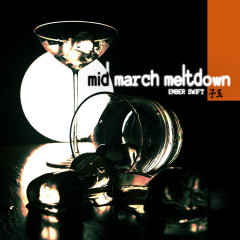Meek or Mute?
Back in the first year with Guo Jian, when my Chinese was so remedial, he and I would sometimes spend long chunks of time in silence. We would walk together without words or enjoy a meal with only exchanged smiles between us and the occasional “hhm” or “ah-ha” about the food.
Back then, we often used music to communicate. We would “jam” our conversations out with our instruments. Thankfully, we were both fluent in music, and I do consider it a language, so-to-speak! 😉
All that was before there were decent dictionaries on cell phones—not so long ago, really—so flipping through the little red dictionary could get seriously exhausting sometimes. And, since it was a full-time crash course in my third language nine long years after having studied it formally, I sometimes felt like my brain was going to explode from over exertion! The silence was a mental respite.
As time went on, though, I got more able to express my daily thoughts and our conversations became less quiet, let’s just say.
The worst part of this language acquisition process, though, was not its impact on my relationship, but its impact on the way I developed my identity in his community.
In China, various girlfriends of his male friends would often attend a group dinner and, as though following the Chinese gender rules for ideal conduct, would sit demurely behind the volume of their male partners’ voices. Several times, I witnessed a woman get her boyfriend’s attention, lean in and whisper something into his ear. Sometimes he would then voice her opinion with the crowd, but conveyed through his voice. Other times, this whispering was for their ears only. Interesting to me was not only the fact that these women had chosen to take a backseat conversationally, but also the fact that this was not considered strange or abnormal, let alone that their whispering wasn’t thought of as rude.
I was raised in a family that had spirited debates over the dinner table. All opinions were heard, young and old, male and female. So, naturally, when I came to China, I wanted to be myself—that person who spoke up and had ideas and beliefs to share.
Of course, my third language was my handicap. Sometimes I was listening so intently in order to comprehend the content of the conversation that I found myself muted by sheer concentration. Other times, I would have to tune it out to give my brain a rest and then someone would direct a question at me and I’d feel my cheeks get hot to have no idea what was being discussed and therefore have no way to respond.
Often I’d think of a great thing to add and spend a moment formulating it in my head for the right grammatical structure and tones only to find that the conversation had moved on. More than once, I’d try to add something and realize too late that the conversation was actually about something slightly different and that my comment was out of place if not seemingly unintelligent.
A friend of mine pointed out that, “Even rocket scientists sound like idiots when they’re learning a new language.”
Truthfully, I wasn’t as worried about being perceived as unintelligent as I was worried about being perceived as deferential to my male partner. To date, my whole identity had been carved around my communication skills as a performer, an activist, a lyricist, a writer. Who was I in this new context but just a foreign face and form with no voice? A meek woman in the background while her man did all the talking? Was this what I was re-inventing myself as?
As you can imagine, these thoughts drove me slightly mental.
Guo Jian was really great about introducing me to people in the context of my life’s work and accomplishments. He’d say, “This is Ember. She’s a musician from Canada. She’s released lots of CDs and has her own label and has toured all over the world.” (etc.)
I was at once grateful for his mini bios and incredibly shy about them.
The shyness came from feeling like there was a spotlight on me that then could not be backed up by a spotlight-worthy verbal performance. It also felt a bit strange to be bragged about while I was right there, for fear my lack of apparent modesty would be judged harshly in a culture that prizes the “modest maiden.”
Of course any gratitude was about having even a moment of visibility, even if it was thanks to the words of my male partner.
About three years after meeting each other, Guo Jian turned to me harshly in an argument and spurted these words: “You used to be so sweet and quiet. What happened? You never shut up now!”
“That’s because I didn’t know how to talk then!” I yelled back, angrily, “And besides, sometimes you need a talking to!”
This response sounds a bit more fun in Chinese: “当时我不会说!另外有时你真需要别人说你!”
But, now that I’ve been in China for a while, I’ve come to understand the power of silence. Listening in on a conversation can be a great way to truly understand the dynamics of a social group and to “read” the subtext that has nothing to do with words. As the partner who is often not initially connected with the people we dine with, for instance, I’ve come to appreciate the option to just sit back and not engage as fervently, if this is my choice.
There’s so much power in choice. Now that I can speak the language, it’s nice to choose not to speak sometimes.
I’ve also now learned that it’s often the demure, whispering women who are calling the shots. Unlike those women, though, I don’t need the superficial demonstration of meekness in order to bolster my strength. When I want to speak, I do. When I want to bow out of the conversation, I do that too. When I have an opinion, I can share or omit.
Dou keyi 都可以 (both are fine!)
I guess what’s changed is me. I have a place here. I don’t need to prove myself to anyone, least of all myself.
No matter who I’m with.
And that also means that sometimes Guo Jian and I spend long chunks of time in silence again, just holding hands or smiling. Proof that knowing and loving isn’t about words at all. It wasn’t then. It isn’t now.
Love is wordless, after all.








